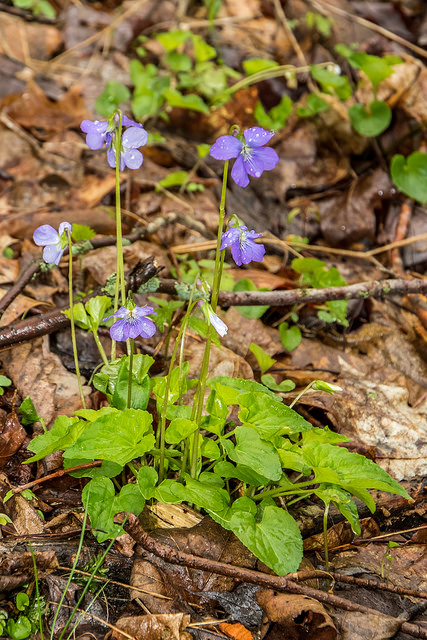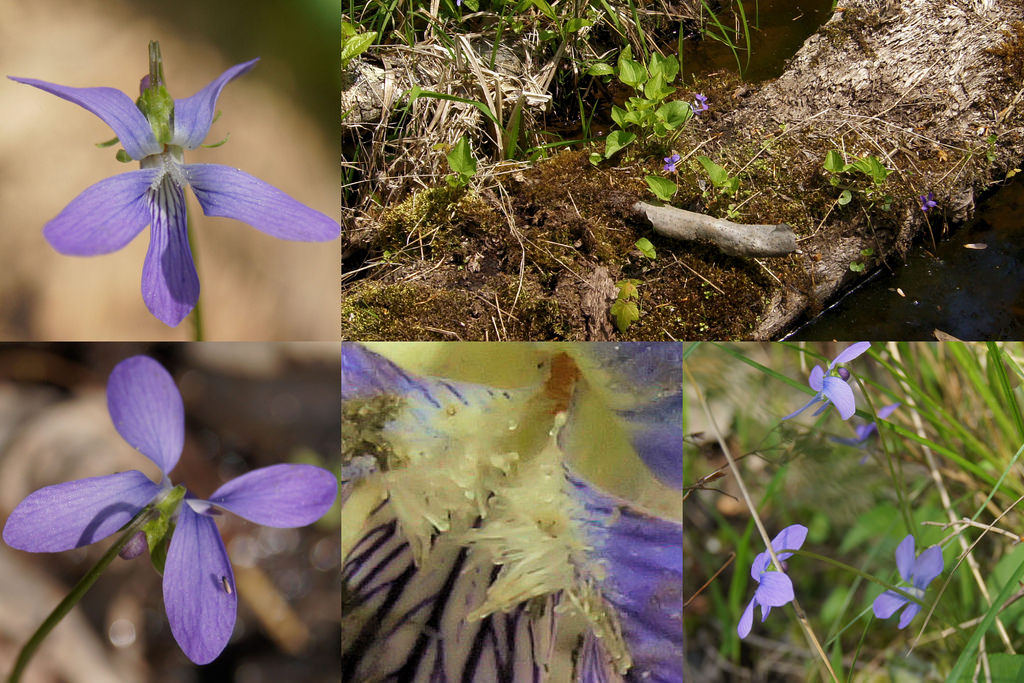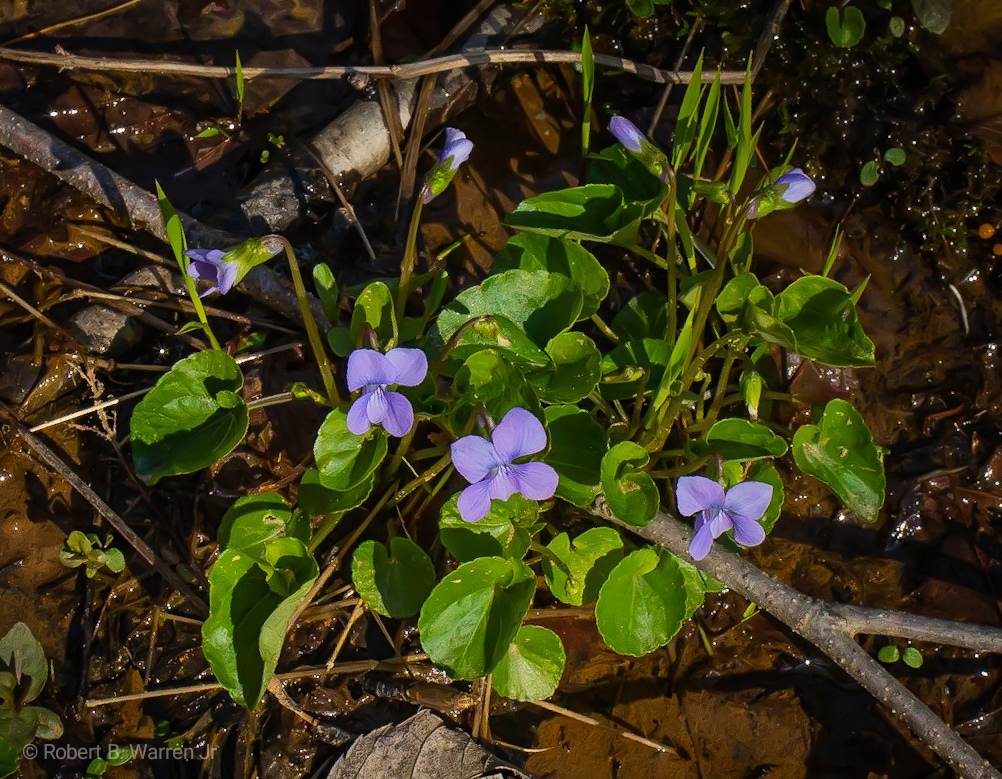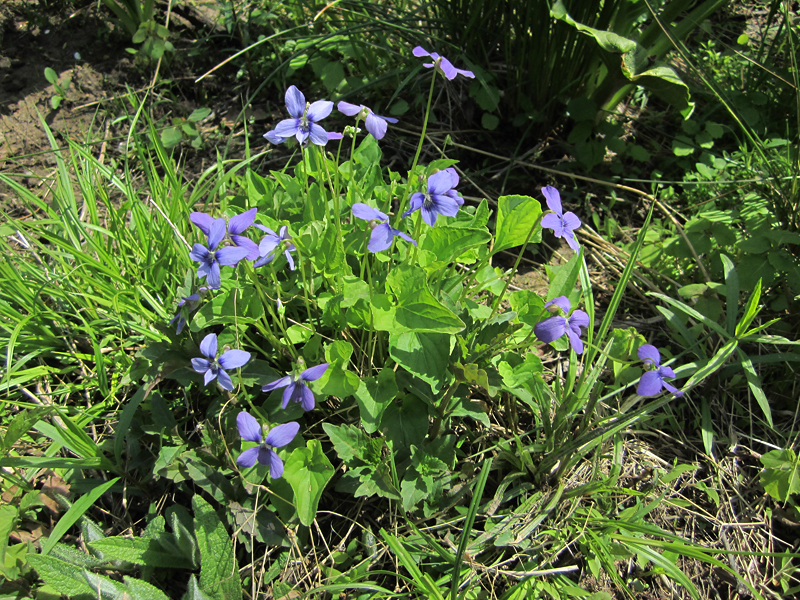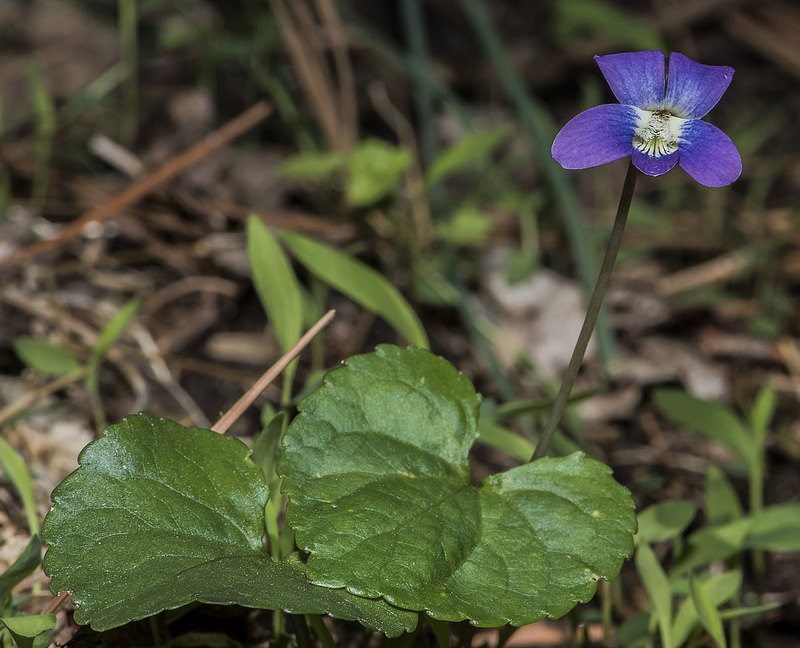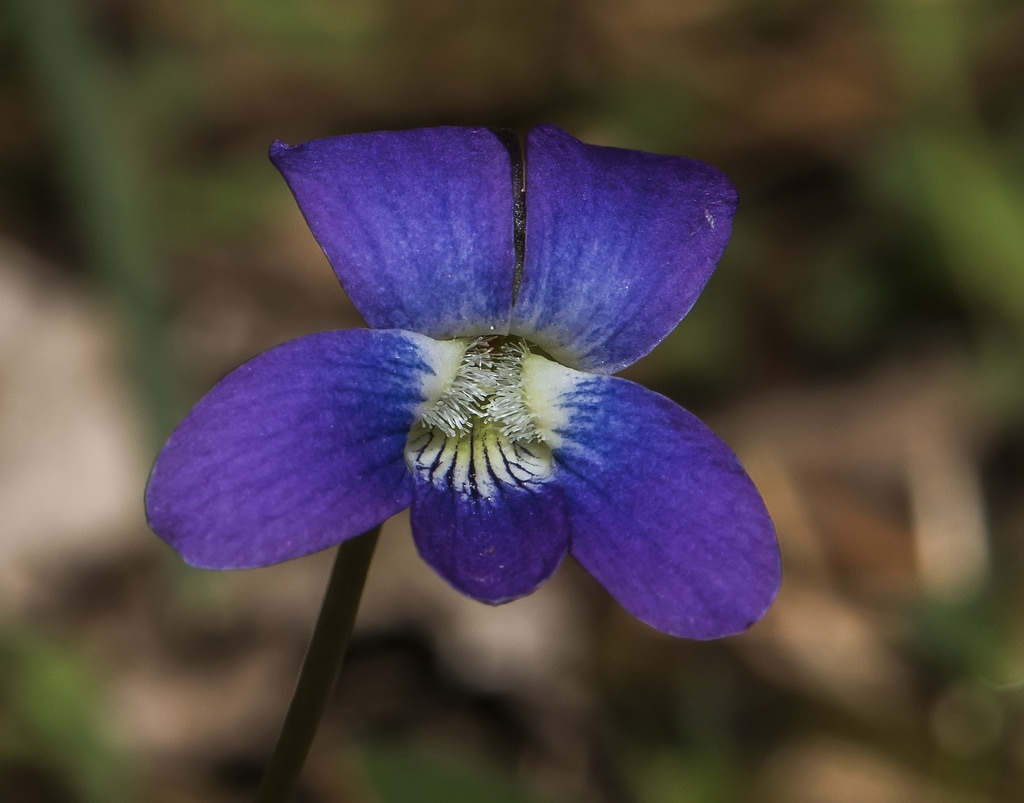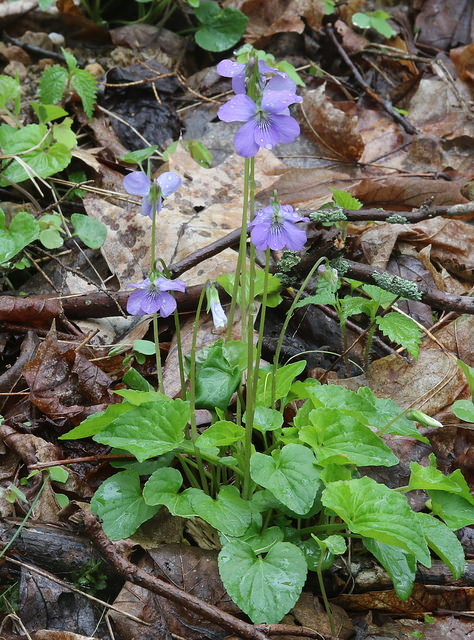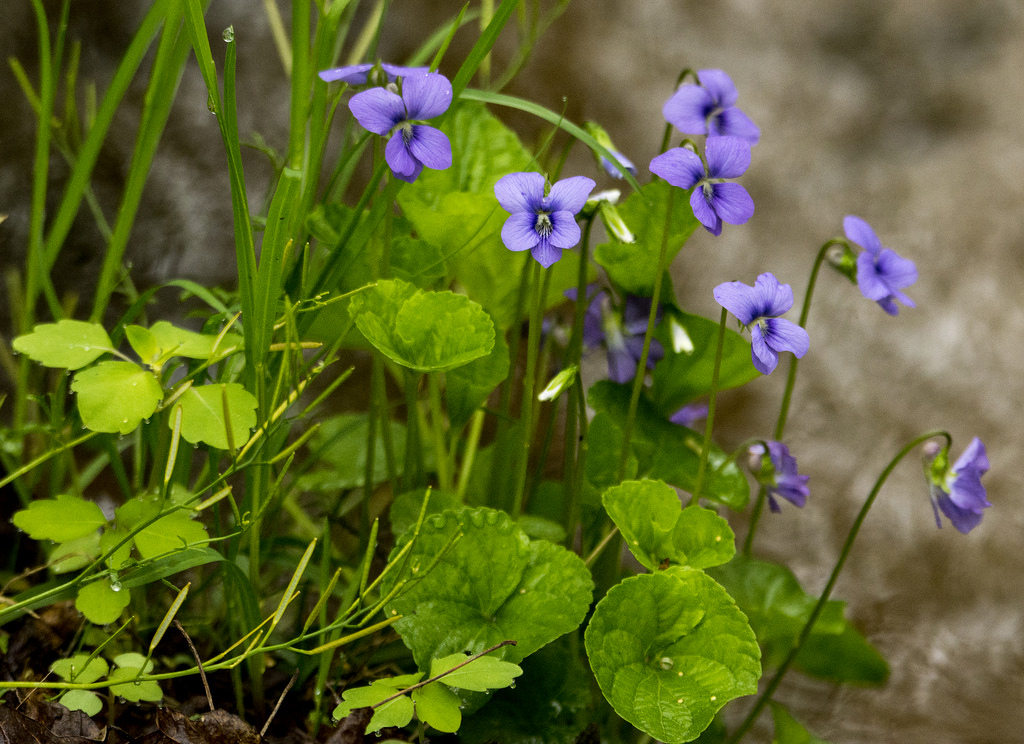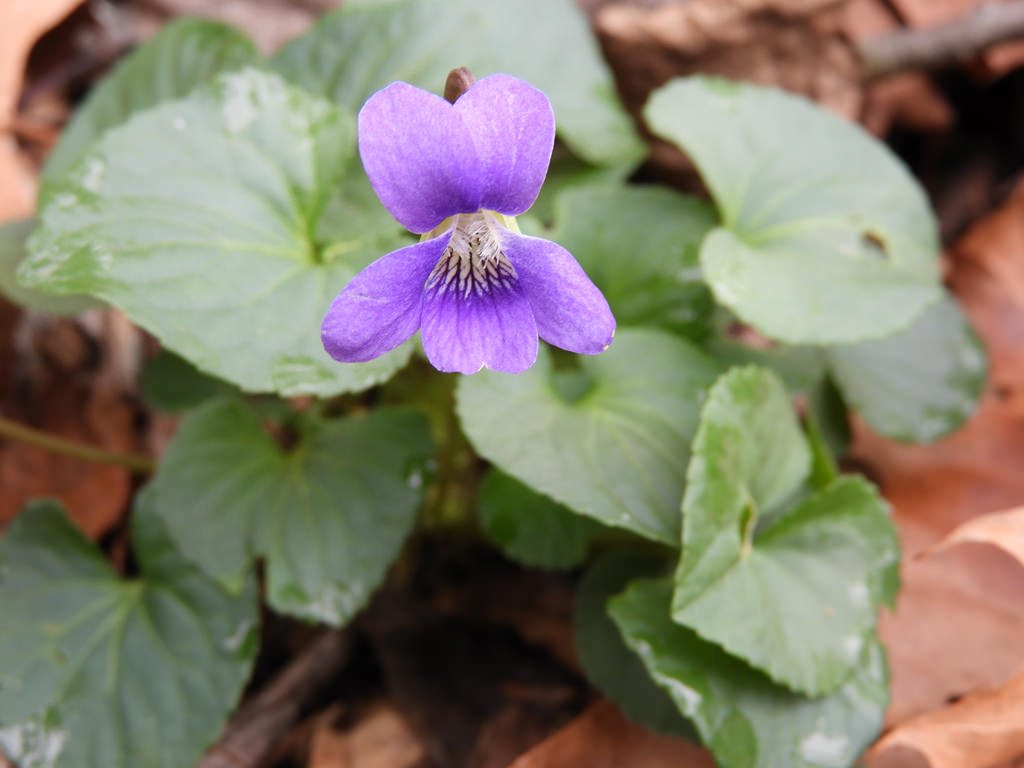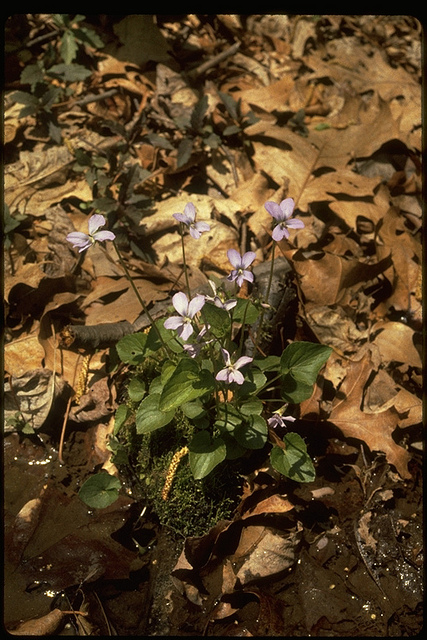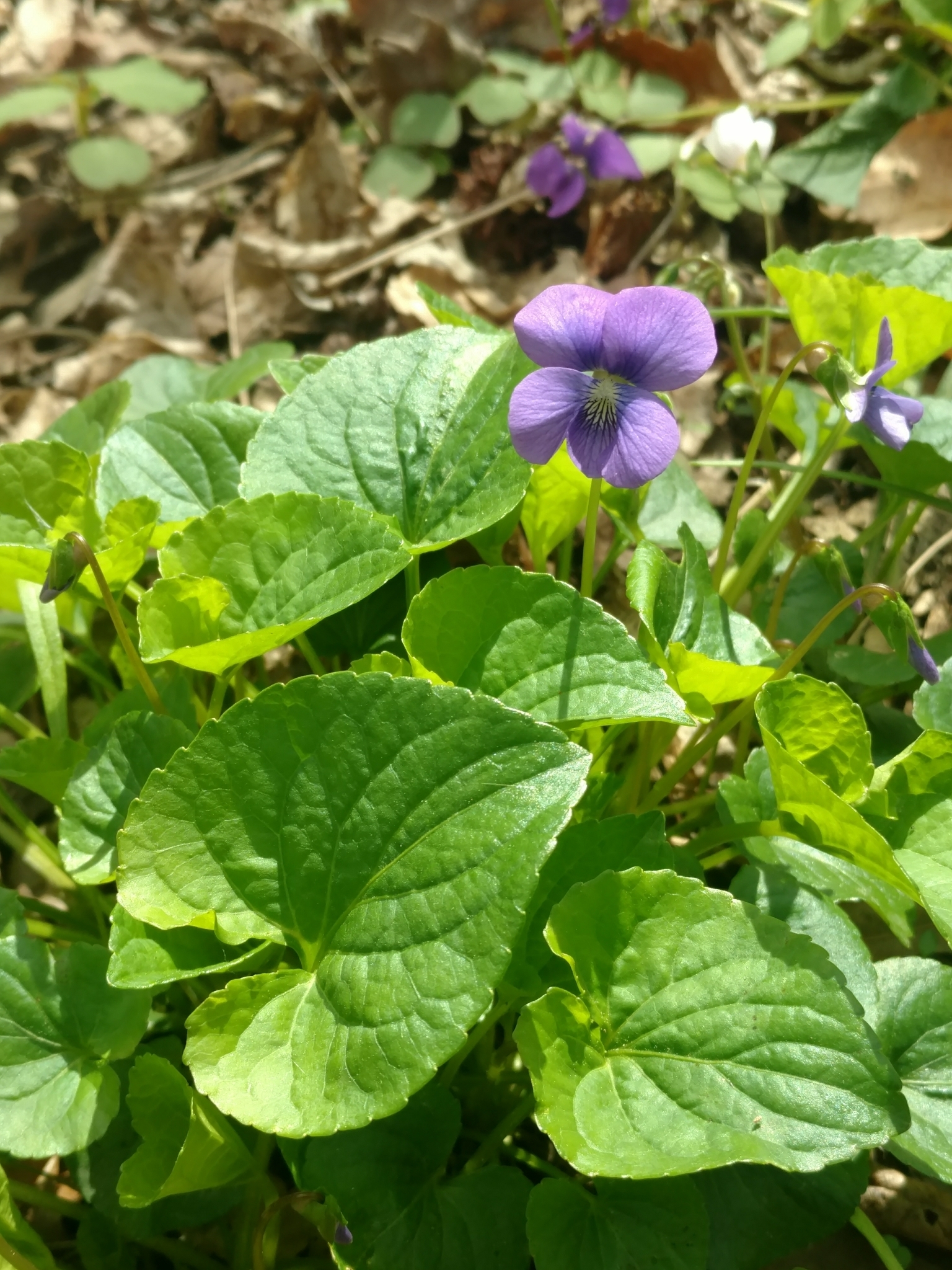Map Snapshot





















165 Records
Status
A specialist of swamps and other wet areas. Not expected to occur as a weed.
Where To Find
Bogs, swamps, and other damp areas.
Relationships
A potential larval host for Silver-bordered Fritillary (Boloria selene).
Seasonality Snapshot
Source: Wikipedia
| Viola cucullata | |
|---|---|
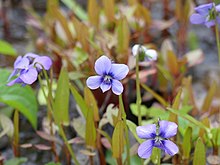
| |
| Scientific classification | |
| Kingdom: | Plantae |
| Clade: | Tracheophytes |
| Clade: | Angiosperms |
| Clade: | Eudicots |
| Clade: | Rosids |
| Order: | Malpighiales |
| Family: | Violaceae |
| Genus: | Viola |
| Species: | V. cucullata
|
| Binomial name | |
| Viola cucullata | |
Viola cucullata, the hooded blue violet, marsh blue violet or purple violet, is a species of the genus Viola native to eastern North America, from Newfoundland west to Ontario and Minnesota, and south to Georgia.[1] It is a recipient of the Royal Horticultural Society's Award of Garden Merit.[2]
Description
[edit]The purple violet is a low-growing perennial herbaceous plant up to 20 cm (8 in) tall. The leaves form a basal cluster; they are simple, up to 10 cm (4 in) broad, with an entire margin and a long petiole. The flowers are violet, dark blue and occasionally white. with five petals. The fruit is a capsule 10–15 mm (3⁄8–5⁄8 in) long, which splits into three sections at maturity to release the numerous small seeds.[3] Its habitats include wet meadows, prairies, and fields.[4]
-
A white purple violet.
-
A closeup of a purple violet flower.
Symbolism
[edit]The purple violet is the provincial flower of New Brunswick.[5]
The purple violet is the official flower of the sorority Sigma Sigma Sigma.[6]
The purple violet is also one of the official flowers of the Sigma Phi Epsilon fraternity.[citation needed]
References
[edit]- ^ "Viola cucullata". Germplasm Resources Information Network. Agricultural Research Service, United States Department of Agriculture. Retrieved 12 January 2018.
- ^ "See RHS lists of top AGM garden-worthy plants, fruit & veg / RHS Gardening". www.rhs.org.uk. Retrieved 2022-09-28.
- ^ "Viola cucullata". Northern Ontario Plant Database.
- ^ "Lady Bird Johnson Wildflower Center - The University of Texas at Austin". www.wildflower.org.
- ^ Blanchan, Neltje (2005). Wild Flowers Worth Knowing. Project Gutenberg Literary Archive Foundation.
- ^ "Our Story • Tri Sigma". Tri Sigma. Retrieved 2024-06-16.
